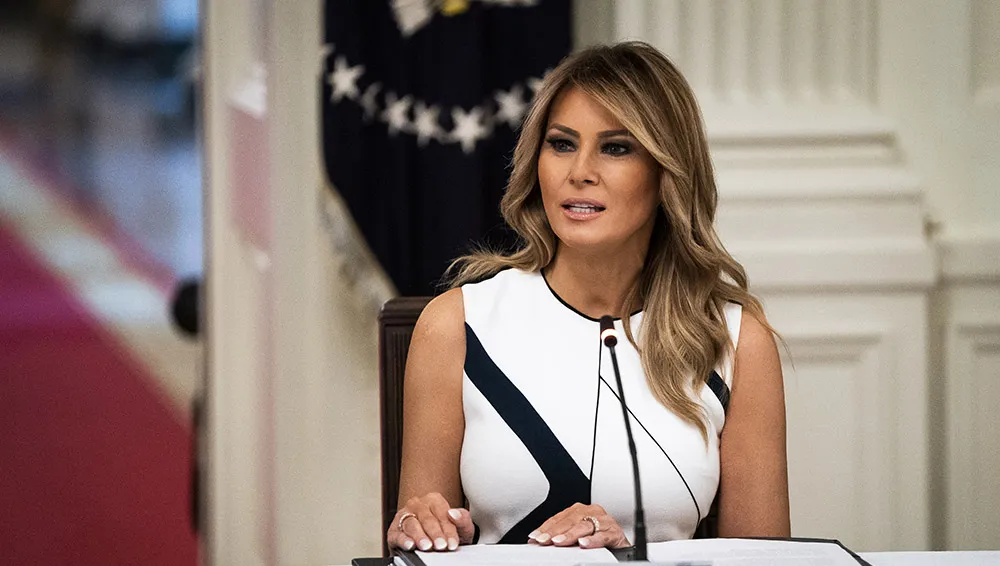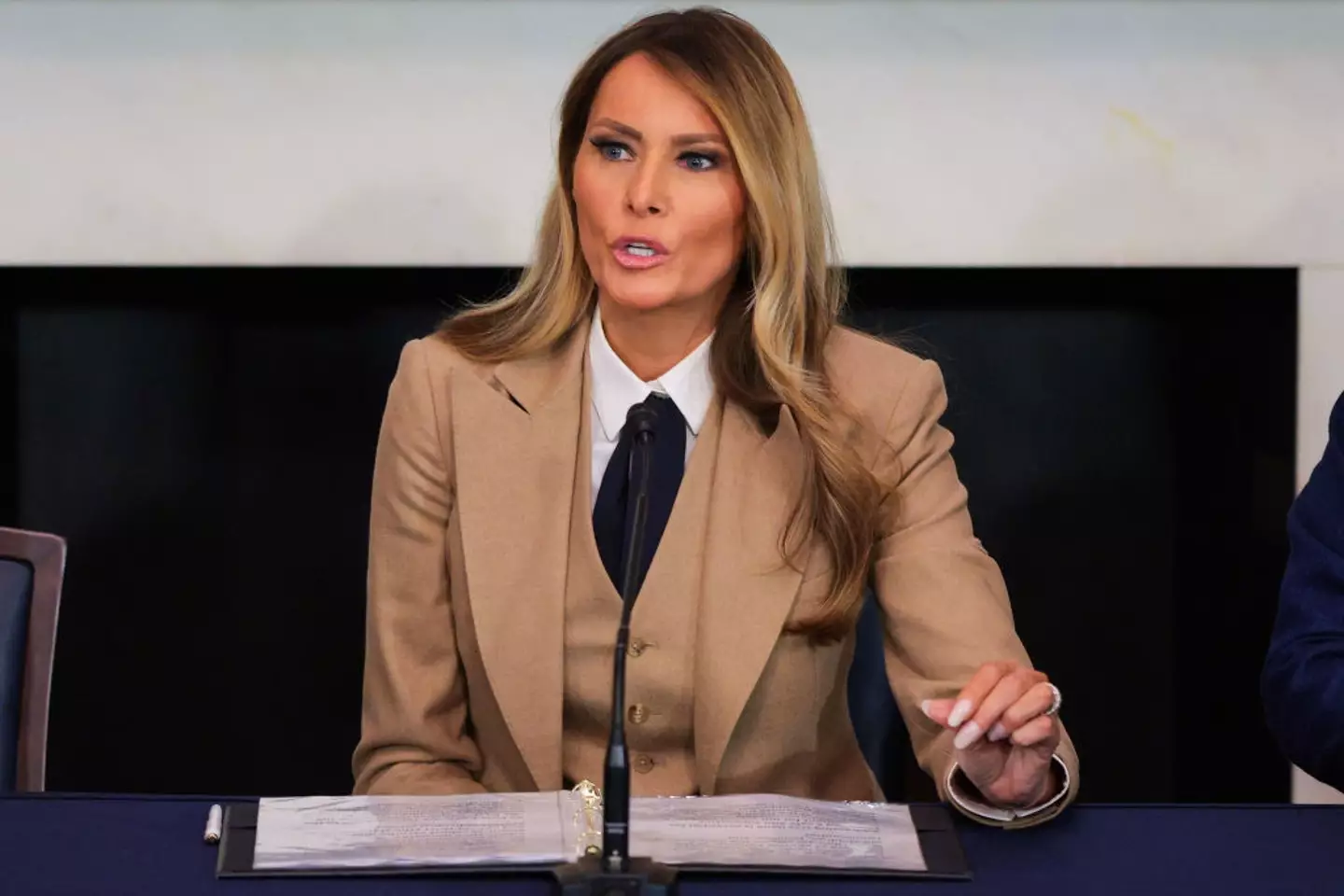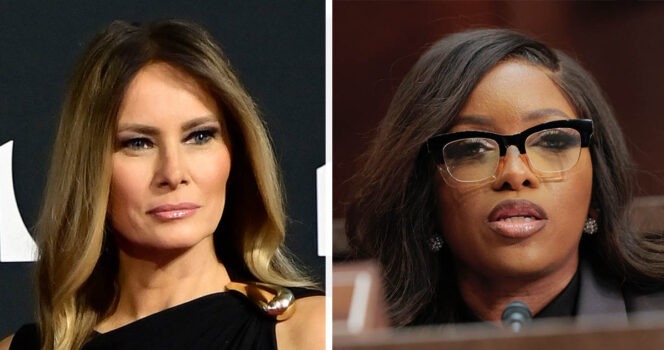Melania Trump, the former First Lady of the United States, has been the subject of public discussion over the type of visa she used to obtain permanent residency in the United States. Much of the debate has centered around the EB-1 visa, also known as the “extraordinary ability” or “Einstein” visa, which she received in 2001. The topic has periodically resurfaced in political discourse, including during congressional hearings, where lawmakers have questioned whether she met the program’s eligibility criteria. Below is an overview of the visa type, Melania Trump’s reported path to it, and the nature of the debate, all grounded in reputable sources and without speculative claims.

What Is the EB-1 Visa?
The EB-1 visa is a category of U.S. employment-based green card reserved for certain individuals who can demonstrate “extraordinary ability” in their field. According to the U.S. Citizenship and Immigration Services (USCIS), the EB-1A category is specifically for people who can prove sustained national or international acclaim in sciences, arts, education, business, or athletics.
To qualify, applicants must provide evidence of achievements such as:
-
Major internationally recognized awards (like a Pulitzer, Oscar, or Olympic medal)
-
Membership in associations requiring outstanding achievement
-
Published material about their work in major media or professional publications
-
Evidence of having been a judge of others’ work in the field
-
Contributions of major significance in their field
USCIS clarifies that applicants need to meet at least three of ten listed criteria or provide evidence of a one-time major achievement (USCIS.gov).

Melania Trump’s Modeling Career
Melania Trump, born Melanija Knavs in Slovenia, began modeling as a teenager and worked in fashion markets in Europe before coming to the United States. According to The Washington Post and Newsweek, she first arrived in the U.S. in the mid-1990s, reportedly holding a series of temporary visas such as the B-1/B-2 tourist visa and later H-1B work visas.
Her lawyer has stated that she worked legally in the United States during this period (Newsweek, 2016). By 2001, she received an EB-1 visa, which allowed her to apply for permanent residency (green card status) as an immigrant of extraordinary ability.
How Rare Was the EB-1 Visa for Slovenians?
According to reporting by The Washington Post in 2017, Melania Trump was one of only five people from Slovenia to receive an EB-1 visa that year. The visa itself is not limited by nationality but is relatively restrictive in terms of how many people globally can qualify each year, due to its high evidentiary requirements.
Criticism and Political Discussion
The EB-1 visa became a topic of debate especially after Donald Trump, during his presidency, promoted stricter immigration policies, including greater scrutiny of certain visa categories.
In 2018, The Washington Post and The New York Times covered how immigration lawyers and experts debated whether Melania Trump’s modeling career met the EB-1 criteria. Critics argued that while she had a successful modeling career, it did not rise to the level of “sustained national or international acclaim” typically expected for the visa. Proponents countered that the law’s requirements can be interpreted broadly and that high-earning or internationally published models can sometimes meet them.
It is important to note that there is no public record of any legal finding or government investigation concluding that her visa was improperly granted.

Congressional Hearing Reference
In 2024, U.S. Representative Jasmine Crockett, a Democrat from Texas, referenced Melania Trump’s EB-1 visa during a House Judiciary Committee hearing. She questioned whether Melania Trump’s qualifications matched the visa’s stated requirements.
Crockett’s comments focused on what she described as inconsistency in how immigration rules were being enforced or debated. She compared the scrutiny placed on other visa holders with what she alleged was a lack of discussion about the First Lady’s immigration path.
During the hearing, she said that the visa typically requires achievements such as winning a Nobel Prize, Pulitzer, or Olympic medal—examples provided on the USCIS website—but did not explicitly accuse Melania Trump of fraud. Rather, she questioned the level of Republican concern for immigration “integrity” in her case compared to others.
(See House Judiciary Committee hearing transcript excerpts, widely reported by Newsweek and The Washington Post in 2024.)
Melania Trump’s Response
As of the time of this writing, Melania Trump has not made a public statement specifically responding to the 2024 remarks by Rep. Jasmine Crockett. However, she has previously defended the legality of her immigration history.
During the 2016 presidential campaign, when the issue first gained widespread attention, her attorney provided documentation to Politico and other outlets showing that she maintained legal status throughout her time in the United States and obtained her green card through the EB-1 process.

Legal Context: How the EB-1 Process Works
It is important to clarify that while USCIS publishes guidelines, it also exercises discretion in evaluating applications. The EB-1 visa does not legally require a Nobel Prize or Olympic medal, though these are classic examples. Instead, applicants must provide documentation showing that they meet at least three of the listed criteria for “extraordinary ability,” which can include evidence such as:
-
High earnings in the field relative to others
-
Display of work in exhibitions or showcases
-
Authorship of scholarly articles
-
Leadership roles in prestigious organizations
It is common for the arts, including modeling, to be evaluated based on professional acclaim, publications, earnings, and industry impact.
(Source: USCIS EB-1 guidelines, uscis.gov)
Broader Immigration Policy Debate
The discussion about Melania Trump’s visa often intersects with debates about U.S. immigration policy more generally. Donald Trump’s administration adopted restrictive immigration measures, including:
-
Executive orders limiting travel from certain countries
-
Policy changes affecting student and work visas
-
Increased enforcement against undocumented immigrants
These policies prompted legal challenges and significant public debate over their fairness and effectiveness. Critics sometimes invoked Melania Trump’s visa as an example of what they saw as hypocrisy or selective enforcement, while supporters argued that her path followed legal procedures.
(Sources: The New York Times, 2017; The Washington Post, 2017; Politico, 2016)

Conclusion
Melania Trump’s receipt of the EB-1 visa remains part of the broader conversation about U.S. immigration law, enforcement, and policy consistency. Official government records confirm she was granted the visa in 2001 under the EB-1 category for “aliens of extraordinary ability,” following the legal process in place at the time.
The criticisms from politicians such as Rep. Jasmine Crockett reflect political disagreement about immigration policy rather than any formal determination of wrongdoing. There is no publicly documented finding by U.S. immigration authorities that Melania Trump’s visa application violated the law.
As immigration policy remains a prominent and often polarizing issue in U.S. politics, discussions about individual cases like Melania Trump’s continue to draw attention, illustrating the complexity of applying broad legal categories to real-world professional achievements.
Sources
-
U.S. Citizenship and Immigration Services (USCIS): EB-1A, Extraordinary Ability
-
The Washington Post (2017): Melania Trump’s immigration path
-
Newsweek (2016): Melania Trump’s visa history
-
Politico (2016): Melania Trump’s immigration documents
-
The New York Times (2017): Immigration lawyers debate EB-1 requirements

